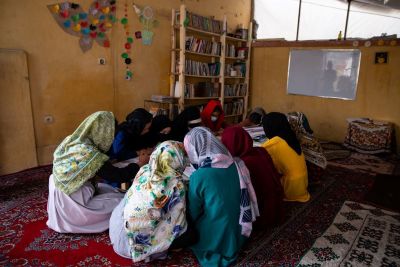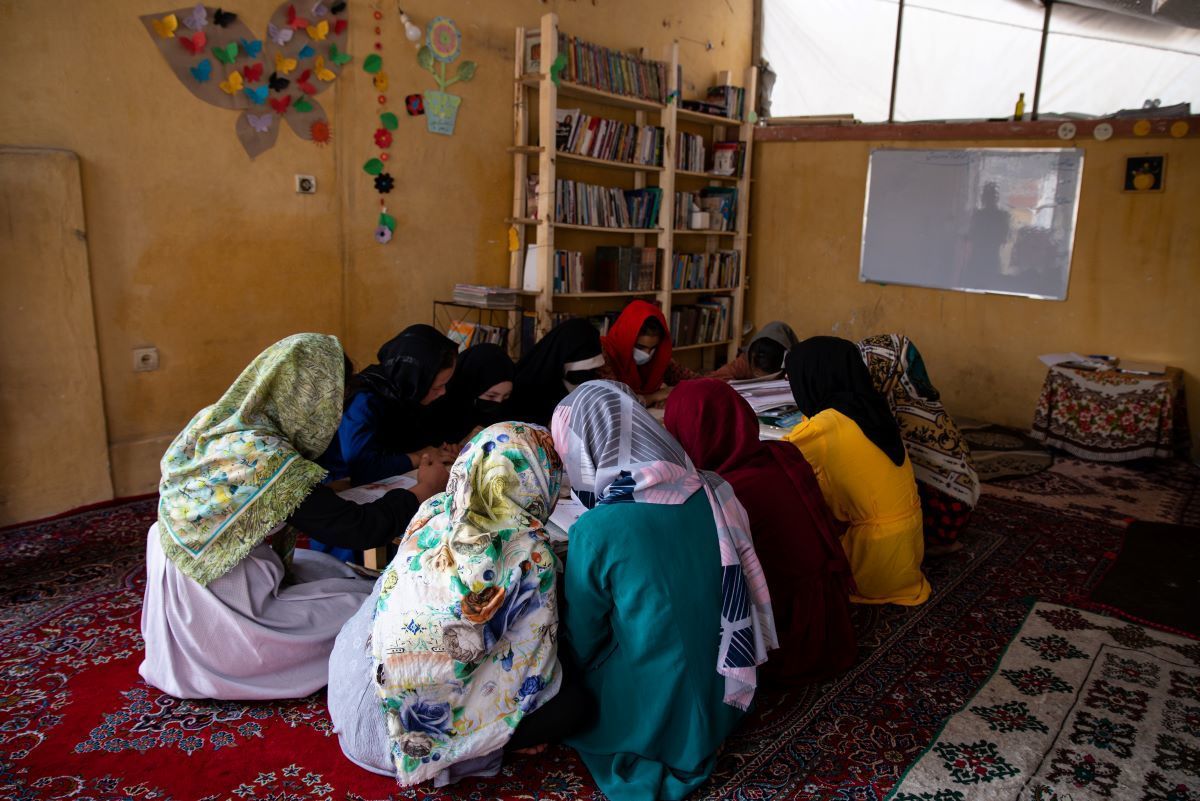
August 30 marks exactly two years since the U.S. and its allies pulled out of Afghanistan, leaving the nation under the Taliban’s authoritarian grip.
For the Afghan people — and the nation’s growing number of isolated Christians — the past two years have seen many changes for the worse.
Before the Taliban took over in August 2021, girls and women enjoyed days out at the park, playing soccer, riding bikes, and swimming. Schoolgirls skipped along happily to their classes. And young women spent their spare time getting makeovers at the local beauty salons.
Now, recreation is just for men. Only boys can attend secondary school. And the once-thriving beauty salons have closed by order of the Taliban.
Women and girls cling to the hope that things will get better. They say the Taliban may be in control now, but nothing lasts forever. Some are even publicly calling for women’s rights and freedoms to be restored.
But the reality right now is bleak — not only for women and girls but for the entire Afghan population.
It’s been said that hope is the last thing to die, and hope is struggling to breathe in Afghanistan today. Unemployment is rampant. Hunger, even starvation, is on the rise. Health services are decimated.
Afghans ask, “Is there any hope?”
“In the last two years, so many things have changed,” says Marzia, a Christian woman (name changed for security reasons). “Life is very difficult now. There’s no education, no work, and all our suffering is because of those two things. There is a lot of anxiety. If [women] go out, they are questioned.”
Every day, we at SAT-7 (www.sat7usa.org), a Christian multimedia ministry broadcasting live 24/7 across the Middle East and North Africa, hear from viewers in Afghanistan battling to keep their hopes alive.
“May the Lord have mercy,” Marzia tells us via social media. “There is no other hope for Afghanistan. I see that people don’t understand what they are doing, but my own faith is growing stronger.”
Reaching for a lifeline
The Afghan people are reaching for a lifeline, and our Christian programs give them real hope by making God’s love visible to them in Farsi and their own local Dari language. Dari is their heart language. When they hear it spoken by their own people on their television, phone or other digital device, they’re immediately drawn to the message or conversation. It’s authentic. It’s trustworthy. It’s 100% Afghan.
Although the Taliban has banned Christianity in Afghanistan and is attempting to suppress Christians, it cannot silence us. Our satellite broadcasts, online streaming, and social media channels are almost unstoppable. They reach into every corner, including the far-flung mountain and desert regions — so remote that even most Afghans don’t venture there.
The light of the Gospel is shining throughout Afghanistan. The Taliban cannot stop it. And they cannot stop the Church from growing, as Jesus said: “I will build My church and the gates of Hades shall not prevail against it” (Matt. 16:18, NKJV).
The Christian message of hope and reconciliation carried over SAT-7’s virtually uncensorable broadcasts and social media platforms is a force to be reckoned with. Nothing else can penetrate the Taliban’s armor like the transformative truth of God’s Word. God has given SAT-7 a powerful and unique way to reach, encourage and disciple the most isolated, vulnerable believers on earth.
We’ve launched Church4Afghanistan, an online church for believers who cannot gather together in person openly for fear of their lives. We are their church. We’re showing them, “You’re not alone! The Church across the Middle East — and around the world — stands with you!”
We remind them: “The Sovereign Lord comes with power … he tends his flock like a shepherd; He gathers the lambs in his arms and carries them close to his heart” (Isaiah 40:10-11, NIV).
Two years after the Taliban takeover, that message gives Afghanistan’s isolated believers the precious hope they’re clinging to.
Dr. Rex Rogers is president of SAT-7 USA (www.sat7usa.org), a Christian multimedia ministry broadcasting live 24/7 across the Middle East and North Africa in local languages with local presenters.
Free Religious Freedom Updates
Join thousands of others to get the FREEDOM POST newsletter for free, sent twice a week from The Christian Post.




























![[Video] More – Aghogho » GospelHotspot](https://gospelhotspot.net/wp-content/uploads/2024/04/More-Aghogho.jpeg)
















